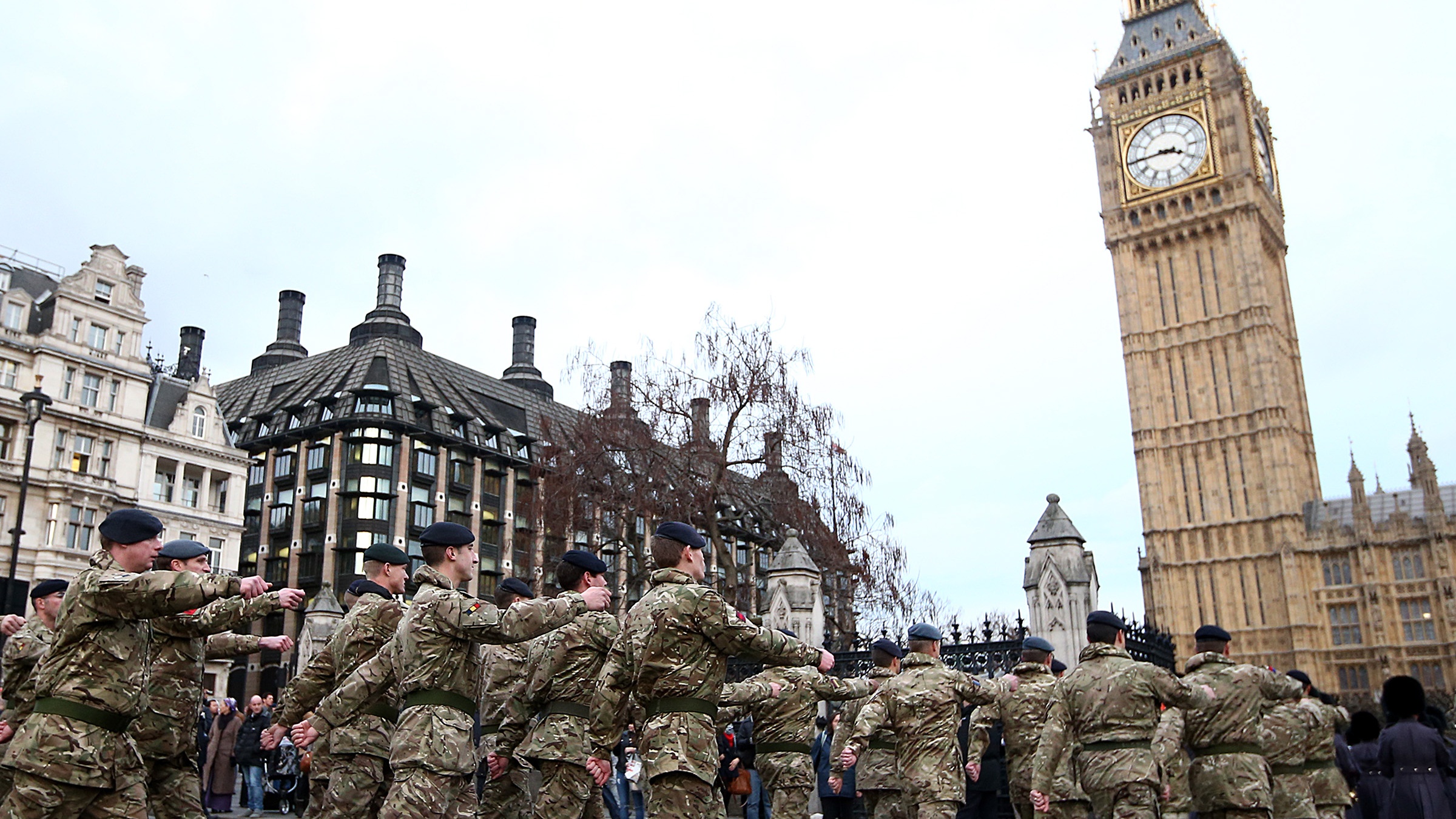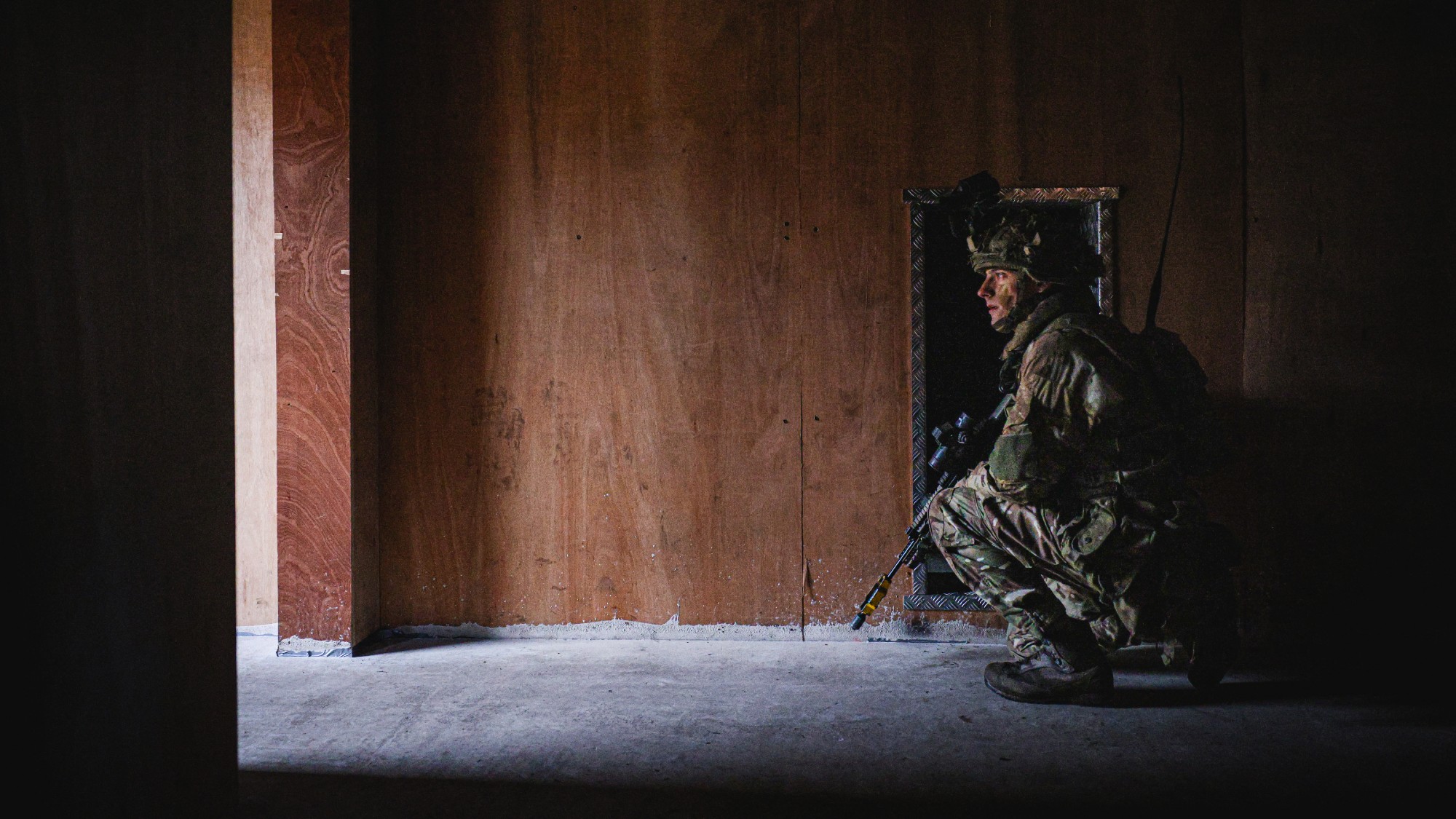Boris Johnson’s foreign policy overhaul: five expected reforms
Boost to defence spending looks likely as part of biggest review since ‘end of the Cold War’

A free daily email with the biggest news stories of the day – and the best features from TheWeek.com
You are now subscribed
Your newsletter sign-up was successful
The UK is to “overhaul its approach to foreign policy” as part of a major government review into the nation’s defence and security.
Downing Street says that it will challenge “traditional Whitehall assumptions” and will include internal and external insights.
The BBC reports that the full remit of the “Integrated Review”, described as the biggest since the “end of the Cold War”, is:
The Week
Escape your echo chamber. Get the facts behind the news, plus analysis from multiple perspectives.

Sign up for The Week's Free Newsletters
From our morning news briefing to a weekly Good News Newsletter, get the best of The Week delivered directly to your inbox.
From our morning news briefing to a weekly Good News Newsletter, get the best of The Week delivered directly to your inbox.
- To define the government’s ambition for the UK’s role in the world
- Set out how the UK will be a “problem-solving” and “burden-sharing” nation
- Decide on the capabilities needed for the next decade to “pursue objectives and address threats”
- Identify the reforms to government systems and structures needed to achieve these goals
So what changes could the review introduce?
Defence spending increase
PoliticsHome says the new plans are likely to include “a spending boost” for the Ministry of Defence (MoD).
The Conservative manifesto commits the government to exceeding the Nato target of spending 2% of gross domestic product (GDP) on defence.
A free daily email with the biggest news stories of the day – and the best features from TheWeek.com
City AM notes that the review has signalled the first big increase in defence spending for more than five years, with the budget “likely to increase to more than £38bn per year”.
This is echoed by The Times, which reports that the review will not be “cost-neutral”, with the MoD in line for a spending boost as part of the plans.
–––––––––––––––––––––––––––––––For a round-up of the most important stories from around the world - and a concise, refreshing and balanced take on the week’s news agenda - try The Week magazine. Start your trial subscription today –––––––––––––––––––––––––––––––
Changes to procurement methods
British military news site Forces.net reports that the government-wide overhaul will also assess the Armed Forces’ procurement processes and its “strength in the face of hostility” will be a focus point.
PoliticsHome notes that defence procurement is a “major target for reform by the Prime Minister’s most senior adviser Dominic Cummings”.
However, the MoD’s “multibillion-pound funding black hole” in its ten-year equipment plan will have to be addressed, The Times adds.
Reduction in the number of troops
Cuts are expected in order to fill this budget gap, with cutting the size of the Army being considered as a way to achieve savings, a government source told the Times.
Conservative commitments to retain the Army at a minimum of 82,000 personnel were notably dropped from its manifesto last year, with the service currently about 9,000 soldiers short of that target.
The review will be led by Professor John Bew, the PM’s foreign policy adviser and an expert in conflict and security, history and politics at King’s College London.
Focus on technology
The Times reports that some of the increase in the MoD’s budget is “likely to fund investment in cutting-edge weapons, cybercapabilities and space technology”.
Launching the review, Johnson said: “As the world changes we must move with it – harnessing new technologies and ways of thinking to ensure British foreign policy is rooted firmly in our national interests, now and in the decades ahead.”
According to The Sun, experts have been instructed to look at how technology and big data can be used to protect the country against threats ranging from “cyber attacks to fake news and malicious propaganda”.
The focus on technology and data comes as “the prospect of an all-out land war recedes”, the Times adds, while “hostile states continue to invest in information operations, cyberwarfare and other hybrid capabilities”.
Replacing UK’s nuclear warheads
Yesterday Ben Wallace, the defence secretary, announced the programme to replace the UK’s Trident nuclear warheads.
As Defense News reports, his written statement to parliament caused annoyance among MPs as the House of Commons had not been consulted or had a chance to conduct scrutiny.
The announcement was not expected to be made prior to publication of the Integrated Review, but the government’s hand was forced when US officials revealed last week that the programme was up and running.
Kate Hudson, general secretary of the Campaign for Nuclear Disarmament, said: “This deal has been agreed in secret with the United States, and the government has admitted it only after Pentagon officials let the cat out of the bag... This is a dangerous and anti-democratic development and must be rolled back,” the Mirror reports.
Deciding the UK’s role in the world
At the review’s launch, the PM noted that “the UK’s institutions, expertise, leadership and values are renowned around the world”, adding: “But we cannot rest on our laurels. We must do more to adapt. We will be judged by how we respond to the opportunities ahead.”
With Brexit on the horizon, part of this response includes deciding on Britain’s role in the world – and its obligations to “sharing burdens with allies”.
The Times adds that the overhaul will consider “the UK’s diplomatic footprint, international aid and the role of the intelligence agencies” in working with its allies against global threats.
Foreign policy objectives “setting out Britain’s role in the world” will be agreed, before departments including the MoD, Foreign Office, Department for International Development and the Home Office are consulted, the paper says.
-
 The EU’s war on fast fashion
The EU’s war on fast fashionIn the Spotlight Bloc launches investigation into Shein over sale of weapons and ‘childlike’ sex dolls, alongside efforts to tax e-commerce giants and combat textile waste
-
 How to Get to Heaven from Belfast: a ‘highly entertaining ride’
How to Get to Heaven from Belfast: a ‘highly entertaining ride’The Week Recommends Mystery-comedy from the creator of Derry Girls should be ‘your new binge-watch’
-
 The 8 best TV shows of the 1960s
The 8 best TV shows of the 1960sThe standout shows of this decade take viewers from outer space to the Wild West
-
 Munich Security Conference: a showdown between Europe and Trump?
Munich Security Conference: a showdown between Europe and Trump?Today’s Big Question Report suggests European leaders believe they can no longer rely on the US for military support – but decoupling is easier said than done
-
 Taiwan eyes Iron Dome-like defence against China
Taiwan eyes Iron Dome-like defence against ChinaUnder the Radar President announces historic increase in defence spending as Chinese aggression towards autonomous island escalates
-
 Is conscription the answer to Europe’s security woes?
Is conscription the answer to Europe’s security woes?Today's Big Question How best to boost troop numbers to deal with Russian threat is ‘prompting fierce and soul-searching debates’
-
 Is UK's new defence plan transformational or too little, too late?
Is UK's new defence plan transformational or too little, too late?Today's Big Question Labour's 10-year strategy 'an exercise in tightly bounded ambition' already 'overshadowed by a row over money'
-
 How will the MoD's new cyber command unit work?
How will the MoD's new cyber command unit work?Today's Big Question Defence secretary outlines plans to combat 'intensifying' threat of cyberattacks from hostile states such as Russia
-
 The state of Britain's Armed Forces
The state of Britain's Armed ForcesThe Explainer Geopolitical unrest and the unreliability of the Trump administration have led to a frantic re-evaluation of the UK's military capabilities
-
 Is the 'coalition of the willing' going to work?
Is the 'coalition of the willing' going to work?Today's Big Question PM's proposal for UK/French-led peacekeeping force in Ukraine provokes 'hostility' in Moscow and 'derision' in Washington
-
 Is Europe's defence too reliant on the US?
Is Europe's defence too reliant on the US?Today's Big Question As the UK and EU plan to 're-arm', how easy will it be to disentangle from US equipment and support?